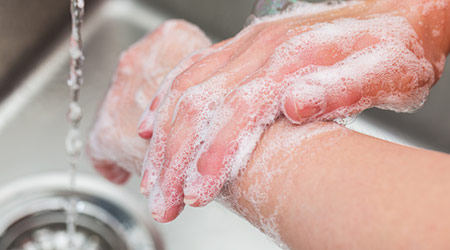
Joint Commission will now cite individual hand-hygiene failures
Hand hygiene is widely considered to be the most important intervention for preventing hospital-acquired infections
January 17, 2018
Topic Area: Infection Control
Recent Posts
 Strategies to Eradicate Biofilm Containing C. Auris
Strategies to Eradicate Biofilm Containing C. Auris
Understanding the speed and risks of contamination after room disinfection should inform managers’ environmental cleaning recommendations.
 Man Attacks Nurses, Police Officer at Jefferson Hospital
Man Attacks Nurses, Police Officer at Jefferson Hospital
The man allegedly attacked the staff members before being restrained and sedated.
 Freeman Health System Breaks Ground on New Full-Service Hospital
Freeman Health System Breaks Ground on New Full-Service Hospital
The construction project will be completed in three phases, over a 24- to 34-month time period.
 All Eyes on Gen Z as They Enter the Workforce
All Eyes on Gen Z as They Enter the Workforce
As the labor gap widens in the facilities industry, not many managers trust Gen Z to fill that hole.
 Cleveland Clinic Starts Fundraising Effort for New Hospital in West Palm Beach
Cleveland Clinic Starts Fundraising Effort for New Hospital in West Palm Beach
Plans for the new hospital include approximately 150 inpatient beds, an emergency department, a medical office building and an ambulatory surgery center.